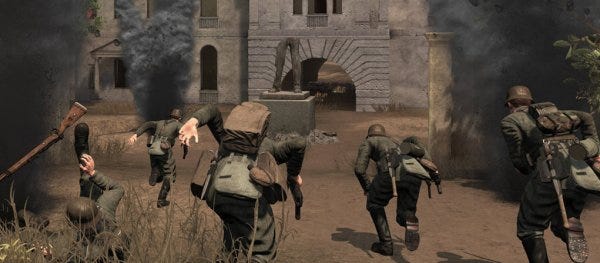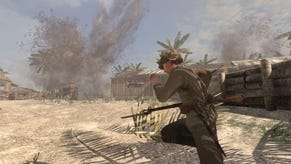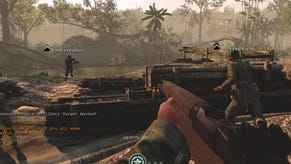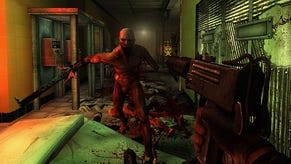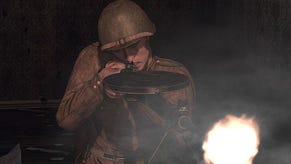Have You Played... Red Orchestra 2
Have You Played? is an endless stream of game recommendations. One a day, every day of the year, perhaps for all time.
Crack!
'Did I get him? I think I got him. Is he just injured? I'm not sure if he's--'
Crack! 'I didn't get him.'
Red Orchestra 2: Heroes of Stalingrad is a multiplayer first-person shooter steadfast in its commitment to historical accuracy and to the grim realities of war. So why do I enjoy it so much?
It's the ambiguity it interjects into every part of its combat. In most multiplayer shooters, no matter what you can see, you'll be notified of accurately striking an opponent by a bleeping sound effect, by a kill notification in the corner, by a shower of gibs. RO2's hardcore servers peel all that away, leaving only jittery people controlling jittery men in half-collapsed buildings across the battlefields of World War 2's eastern front.
You might have hit the person you saw in the window across the courtyard and killed him. You might have hit and injured him, causing him to retreat and start applying bandages. You might have hit him and injured him and he might have no bandages left, in which case he'll be slowly bleeding to death while his in-game character calls out for his mother in German or Russian. You might not have hit him at all, but your bullets slamming into the flimsy woodwork beside his head might have caused his character to panic, his vision to blur, and his hands to shake in a simulation of fear that makes continuing to fire worthwhile even if you know for sure you're not hitting.
The ambiguity then carries on into every following decision you make. Is it safe to run across that courtyard? Have you just given away your position and you should re-locate? Is it worth tossing a grenade through the window to make sure, or should you clamber inside and trust your quarry has at least fled?
Red Orchestra 2 embraces historical accuracy above game balance, but the result is that every second is tense and every decision you make is important. It's as thrilling as it is horrible.
